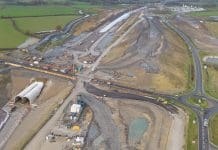Investing in the BIM education of experts is an obstacle that the construction industry needs to overcome to start using BIM properly. In this interview with Lars Fredenlund, CEO of coBuilder AS, he discusses an initiative that invests in BIM education
What is the first thing that comes to mind when we examine the blockers that the construction industry sees when it comes to using BIM properly? Is it a lack of standardisation? A lack of software solutions? Or is it about the insufficient understanding of the complex processes that make Building Information Modelling possible? In this interview, we ask Lars Fredenlund, CEO of coBuilder AS about the initiative to invest in BIM education.
What are the major obstacles that the construction industry needs to overcome to start using BIM properly?
At coBuilder, we have been developing software solutions for digitalisation and creating smart processes for the streamlining of construction products information for over 20 years. We have invested a lot of time in research and development of standard based common data exchange formats. Apart from that, we have created mechanisms for automatic translation of product data based on common data dictionaries compliant with open BIM standards. After all that effort, the conclusion we have come to is that as much as we like to believe otherwise: BIM is not created only by the technology, but also by the human competence that guides the process.
We all know that digitising the construction industry will have positive consequences for both people and the environment, and these consequences will be greater than what we can see today. However, this requires people with a deeper insight, a greater understanding of the processes and a more thorough knowledge about digitisation and open BIM. We need experts and visionaries who see the connections and can stake out the way forward on an international level.
So where do knowledge and technology meet in the current state of the industry?
The software we have today is sufficient for creating data-rich BIM models that help the collaboration between actors on construction projects. What we still have little of is genuine interest and desire to digitise. Indeed, we see clients and contractors who take the initiative, but they are not the majority in the supply chain. It seems that we are missing the point of the whole BIM philosophy, which is getting everybody involved so that everybody can benefit from the process. In other words, if one of the gears is missing, we are not going to get very far.
Getting BIM to work requires an analytical mindset and understanding of the construction process because there is no point in collecting and analysing BIG DATA without knowing who will need it and why it might be useful to them.
So what would be a practical solution to these problems in your opinion?
It is obvious that we need better BIM education to get the ball to roll. That is why coBuilder is funding a PhD in BIM data streaming at Cardiff University.
Although our company has been operating in the British market for only two years, we have been actively participating in creating the open BIM standards and developing a common template for digitising and exchange of product information. That is why we believe that our experience and knowledge will be useful for the future BIM experts.
Could you explain a bit more about your sponsored PhD in BIM data streaming at Cardiff University?
The name of the first (let’s hope of many) PhD projects we are financing is Standardized BIM data streaming towards Real Time Proactive Decision Support for Infrastructure Asset Management (BIM4InfraAM). It aims to develop BIM-based processes to combine traditional inventory and condition data with the output of condition monitoring and evaluation surveys to provide a basis for the real-time performance management, decision making and intervention required to optimise scheme development and prioritise budget-limited asset group investment strategies. The innovation lies in the development of BIM Level 2 standards for infrastructure to facilitate real time and risk-based multi-criteria decision making through the processing of large-scale ‘big data‘.
The PhD candidate will work closely with the Welsh Government (Transportation Department) who will participate from a client point of view, and Nick Tune, CEO of coBuilder UK, will be the industry supervisor.
Why have you chosen to support a PhD in the field of BIM for Infrastructure?
We have chosen an infrastructure project for a case study on optimising BIM processes of collecting and analysing data since it seems that BIM is adopted to a very small extent in the sector. But the possibilities are enormous in this sector – about 80% of the public funding for projects in Wales are in infrastructure, and not construction. Therefore, it is important to be involved here and now – the experience will be invaluable for creating a data analysing solution that will work for both construction and infrastructure.
Click for a full description of the PhD project Standardized BIM data streaming towards Real Time Proactive Decision Support for Infrastructure Asset Management (BIM4InfraAM).
Lars Fredenlund
CEO
coBuilder AS











![[VIDEO] Heathrow’s third runway plan wins out over Arora London, United Kingdom – May 31, 2023: A commercial airliner taking off at London's Heathrow Airport, representing plans for a third runway](https://www.pbctoday.co.uk/news/wp-content/uploads/2025/11/iStock-2143084103-218x150.jpg)


